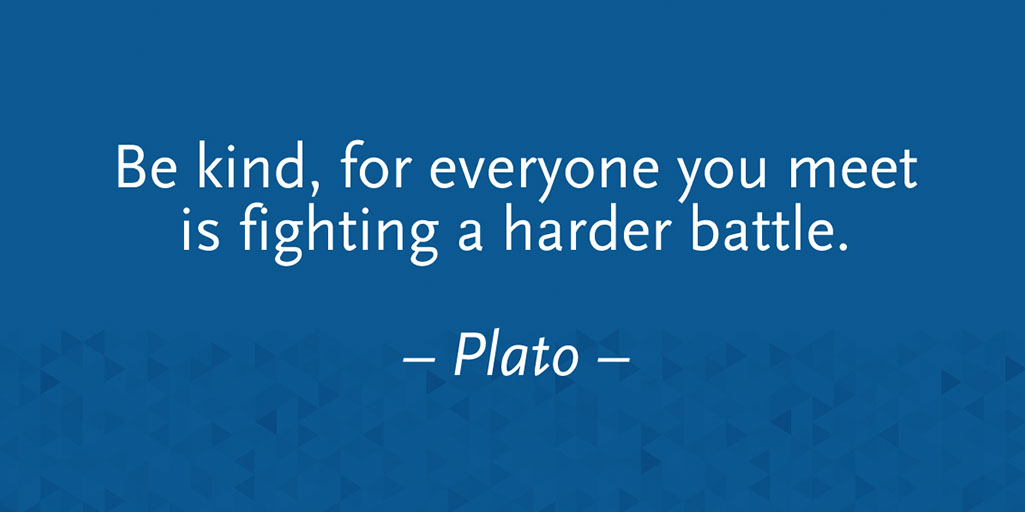Five Ways You Can Show Kindness to People with Intellectual and Developmental Disabilities on World Kindness Day

Happy World Kindness Day!
World Kindness Day was born when a collection of humanitarian groups came together on Nov. 13, 1997 and made a “Declaration of Kindness.”
World Kindness Day is to highlight good deeds in the community focusing on the positive power and the common thread of kindness which binds us. Kindness is a fundamental part of the human condition which bridges the divides of race, religion, politics, gender and Zip codes.
To commemorate the day, here are five things you can do to make the world a better and kinder place for people with intellectual and developmental disabilities (I/DD).
1. Listen to and Talk with Them
Often, it’s assumed that people with I/DD disabilities can’t or don’t want to interact with others. If you see an adult or child with a disability, don’t ask questions to the person they are with, ask them!
You may have to learn how they communicate – some people use sign language or a communication device to speak – but you can learn something new and make a new friend at the same time.
2. Respect Their Choices and Their Bodies
When you rely on other people to help you with day-to-day tasks like transportation and eating, it can be hard to feel like you are in charge of your own life and body.
If you see someone with disabilities, always ask before you touch their wheelchairs or other body parts. They may need help sometimes, but always ask before you move them to another room. If they say, “No, I don’t need help,” don’t touch them!
3. Include Them
It wasn’t until 1975 that states were required to provide educational opportunities to children with intellectual and developmental disabilities. In 1990 the landmark Americans with Disabilities Act was passed, ensuring the people with disabilities had access to the same basic rights as people without disabilities.
Even with these laws, people with disabilities are often excluded from activities. Take time to make sure your friends and colleagues with disabilities can participate in activities like church, school, work or more. If you aren’t sure how, follow tip one – just ask!
4. Assume They Can Do Things
A lot of people make assumptions about people with intellectual disabilities and what they are able to do. This can be exhausting for people with disabilities. Imagine if someone assumed you couldn’t do anything on your own or allow you to try something you might fail!
By assuming that people with intellectual and developmental disabilities can learn and do things, you give them the same basic dignity and respect that you deserve on a daily basis. When a person with disabilities needs help, they or someone who supports them will let you know.
5. Make Sure They Have the Support They Need
Just like you, people with disabilities sometimes need support to go to school, go to work, eat and more – they just may get support differently than you do.
You can show kindness to people with disabilities by learning more about how services they rely on services are fully funded – services such as education, healthcare and long term care from providers like Mosaic. Then, you can advocate to make sure that those services are fully funded so all people can live a life of possibilities. Learn more at mosaicinfo.org/get-involved/advocate.
What’s one thing you’re doing to support World Kindness Day? Share your story using the hashtags #WorldKindnessDay #WKM and tag @mosaicpossible so we can see it!


